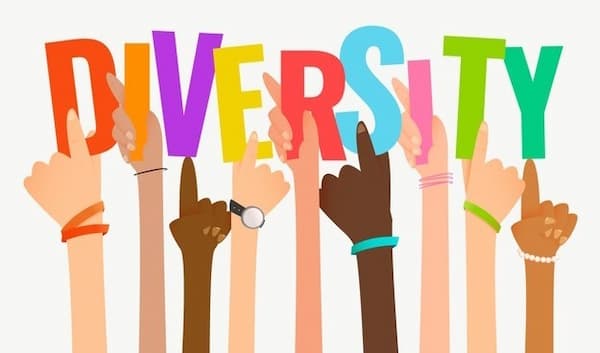
12 October, 2024
Creating an Inclusive Brand Image with Ladies’ Polo Shirts
In the contemporary business world, building a brand isn't just about selling a product or a service; it’s about crafting an identity that resonates with your audience. Among various strategies to enhance brand identity, fashion plays a pivotal role. Specifically, ladies’ polo shirts have emerged as an inclusive element in building a brand image that appeals to a broad audience. We are going to look at how integrating custom ladies' polo shirts into your branding strategy can help cultivate an inclusive and positive brand image.
The Evolution of Polo Shirts in Women's Fashion
The journey of polo shirts from men's sportswear to a staple in women's fashion is a fascinating one. It reflects broader social and cultural shifts.
They originated in the late 19th century as attire for polo players. They were designed by Lewis Lacey, a polo player, in 1920, with a button-down collar to prevent flapping during the game. The style was quickly adopted in other sports like tennis and golf.
As women began participating more actively in sports and outdoor activities in the early 20th century, the practicality and comfort of the polo shirt made it an attractive option. This period marked the beginning of borrowing elements from men's fashion into women’s wardrobes.
By the mid-20th century, fashion icons and celebrities began incorporating them into their casual wear, signalling a shift in their perception from purely athletic to fashionable garments. Over the years, designers have reimagined the classic polo shirt for women, introducing variations in cuts, colours, and fabrics. This versatility has made it a preferred choice for various settings, from casual outings to professional environments.
Today, it is seen as a gender-neutral garment, breaking away from traditional gender norms in fashion. It's a symbol of empowerment, equality, and the blurring of lines between traditionally masculine and feminine styles.

Embracing Diversity and Inclusivity
The incorporation of them into a brand’s strategy can significantly enhance its commitment to diversity and inclusivity:
Offering a comprehensive range of sizes is crucial. It ensures that people of all body types feel included and represented by your brand. This move breaks away from the fashion industry's traditional focus on limited size ranges.
People have unique body shapes and personal preferences. Offering different fits (like slim fit, relaxed fit, etc.) and styles (such as varying sleeve lengths, collar types, and hemlines) allows individuals to choose what works best for them, fostering a sense of personal expression. Using diverse models in marketing campaigns for these polo shirts sends a powerful message. It shows that your brand acknowledges and celebrates a wide spectrum of beauty and body types.
Inclusivity also means considering aspects like fabric types for different skin sensitivities, easy-to-use closures for people with mobility issues, and designs that respect cultural sensibilities. True inclusivity in fashion goes beyond simply offering a range of options; it involves actively listening to customer feedback and continually adapting to meet the evolving needs of a diverse customer base.
Customisation and Brand Identity
Customisation is an essential strategy for enhancing brand identity. Adding brand colours and logos is a direct way of incorporating your brand's aesthetic and ethos into wearable items. This visual representation helps in reinforcing brand recognition and loyalty.
It's crucial to find a balance. Over-branding can lead to a cluttered and unappealing look, while under-branding might fail to convey the brand message effectively. The goal is to achieve an elegant design that aligns with your brand's image and values.
The method and quality of customisation (like embroidery, screen printing, or digital printing) play a significant role. Choosing a quality customisation not only adds to the garment's aesthetic appeal but also ensures durability and a professional look. The designs should be versatile enough to cater to different tastes and settings. This could mean offering a range of options from subtle branding to more pronounced designs, depending on the occasion and the wearer's preference.
It can also go beyond just adding a logo. It can include unique design elements like custom buttons, contrasting colour trim, or special stitching that subtly incorporates brand elements.

Comfort Meets Professionalism
The blend of comfort and professionalism in ladies' polo shirts makes them a popular choice in the corporate world. They strike the perfect balance between casual and formal wear. They are less formal than a blazer but more polished than a basic t-shirt, making them suitable for a variety of business settings.
The comfort often comes from the choice of materials like cotton, polyester blends, or performance fabrics that offer breathability and ease of movement. Additionally, the fit is designed to be flattering yet comfortable, suitable for long hours of wear.
Their versatility makes them ideal for various corporate occasions. They can be dressed up with a blazer for important meetings or worn as they are for everyday office wear or casual events. By offering a combination of comfort and style, ladies' styles help in projecting a modern, forward-thinking image of the brand. They suggest a workplace that values both performance and employee comfort.
Comfortable yet professional attire can positively impact employees' morale and productivity. When staff are comfortable and feel good about their appearance, it can boost confidence and job satisfaction.
Marketing and Promotion Strategies
They can be powerful assets in your marketing and promotional toolbox. Using polo shirts as uniforms during events or trade shows is a smart way to create a cohesive and professional appearance. It helps in team identification, enhances brand cohesiveness, and makes staff easily approachable. For women, especially, ones that are tailored and fit well can boost confidence and comfort, leading to better interaction with potential clients or customers.
They are excellent items for giveaways, contests, or as part of promotional campaigns. They are perceived as high-value items compared to basic tees, which can increase participation and interest in your promotion. Additionally, when recipients wear them, it extends the reach of your brand to a wider audience.
Incorporating them into loyalty programs can enhance customer engagement. Offering a style for ladies, rather than a unisex style, as a reward for loyalty can be a significant incentive for customers to continue their patronage. When they wear your shirts in public, it increases brand exposure. Each person wearing your shirt becomes a walking billboard, showcasing your brand to a broader audience. This is particularly effective when the design is attractive and the shirt is worn regularly.
Encouraging customers or employees to share photos while wearing them on social media can amplify your brand's presence. You can create hashtags or run photo contests to further engage your audience. They can also be customised for specific campaigns or target groups. For instance, a limited-edition design for a particular event or a specific demographic can create exclusivity and desirability.
Incorporating ladies' polo shirts into your marketing and promotional strategies offers a multitude of benefits. From enhancing brand visibility to creating positive brand associations and fostering customer loyalty, these garments have become versatile marketing tools. The key is to ensure high quality, thoughtful design, and alignment with your brand values to maximize their impact.
Conclusion
Incorporating ladies’ polo shirts into your brand’s strategy is about more than just fashion; it’s about embracing inclusivity, diversity, and modernity. By choosing the right styles, customising them thoughtfully, and aligning them with sustainable practices, you can create a powerful and inclusive brand image that resonates with your audience. In the end, it's about creating a connection with your customers and work staff.
The Polo Shirts Only Team

